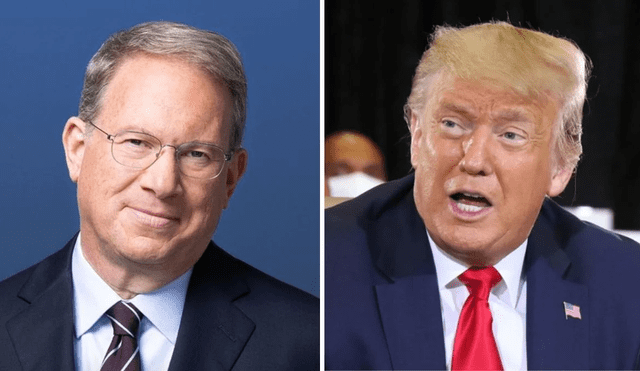Trump's national security team accidentally added 'The Atlantic' editor Jeffrey Goldberg in Yemen strike plans
Jeffrey Goldberg, Editor-in-Chief of The Atlantic, reveals that he was mistakenly included in a national security messaging chain about U.S. military strikes on the Houthi group in Yemen. The article uncovers a breach of protocol and outlines the key discussions among top Trump officials.

In a startling revelation, The Atlantic Editor-in-Chief Jeffrey Goldberg disclosed that he was mistakenly included in a national security messaging chain involving the Trump administration's plans for military strikes in Yemen. The breach, which occurred earlier this month, involved top U.S. officials, including Vice President JD Vance, Defense Secretary Pete Hegseth, and national security adviser Mike Waltz. Goldberg's accidental inclusion in the chat about the targeted operations against the Houthi terrorist group sheds light on an unexpected lapse in protocol within the administration's decision-making process.
The messaging chain revealed crucial details about the strikes carried out on March 15, 2025, which targeted multiple Houthi leaders. This unintended disclosure of sensitive information raises questions about security practices in high-level national security communications, especially as tensions surrounding U.S. military actions in the Middle East continue to escalate.
How Jeffrey Goldberg was included in secret national security conversations
In an unexpected turn of events, The Atlantic's editor-in-chief, Jeffrey Goldberg, found himself part of a national security messaging chain that discussed U.S. military action against the Houthi group in Yemen. The text chain, which began on March 11, 2025, included top Trump administration officials, such as Vice President JD Vance, Defense Secretary Pete Hegseth, and National Security Adviser Mike Waltz, alongside other key figures like CIA Director John Ratcliffe and Secretary of State Marco Rubio. The conversation revolved around preparations for airstrikes aimed at neutralizing Houthi leaders, backed by Iran.

Jeffrey Goldberg revealed he knew something was gonna happen in the Middle East on March 15, 2 hours before the Yemen strike. Photo: NPR
Goldberg, who initially doubted the authenticity of the connection with Waltz, later confirmed that the text chain was indeed legitimate. The discussions included detailed plans about the operation and how it would be communicated with other governments, emphasizing the Trump administration's goal of countering the Houthi insurgents and sending a strong message about U.S. resolve in the Middle East.
U.S. strikes in Yemen: strategic military decisions and controversial messaging
On March 15, 2025, the U.S. launched strikes across Yemen, claiming to have "taken out" multiple senior Houthi leaders. While the operation was a clear demonstration of U.S. military power, it raised concerns regarding the risks involved, including the potential for escalating tensions with Iran and other Middle Eastern nations. The administration justified the strikes by emphasizing the strategic necessity of maintaining control over critical shipping lanes and preventing further destabilization in the region.
However, within the internal discussions, Vice President JD Vance voiced concerns about the broader consequences of the military actions, including the economic impacts such as a possible spike in oil prices. Vance questioned the timing of the strikes and whether the U.S. public fully understood the reasons behind such military action.
Internal disagreements in the Trump administration over Yemen strikes
The messaging chain also revealed internal differences within the Trump administration. While Defense Secretary Pete Hegseth and National Security Adviser Mike Waltz pushed for immediate action, arguing that the strikes were critical for national security, Vice President Vance expressed reservations, suggesting that the timing could be delayed for better messaging and preparation. Ultimately, Vance appeared to relent, indicating his support for the decision but acknowledging the complexities involved.
The discussion showcased a high-stakes balance between military necessity and political strategy, with officials considering both the operational needs and the potential fallout from their decisions.
Goldberg’s role: Why the leak of sensitive information is significant
Goldberg's inadvertent inclusion in this high-level chat is troubling for national security. As the editor-in-chief of The Atlantic, his accidental exposure to such sensitive information raises questions about the protocols for managing classified communications. The breach underscores the risks associated with unsecured messaging platforms, even those used by top government officials.
Goldberg’s involvement in the chain was particularly notable given his previous reporting on controversial issues related to the Trump administration, including his 2020 article about alleged disparaging remarks made by Trump about U.S. troops. His role in the messaging chain highlights a significant lapse in communication security, which could have had serious consequences had the details of the military operation been leaked to external parties.













